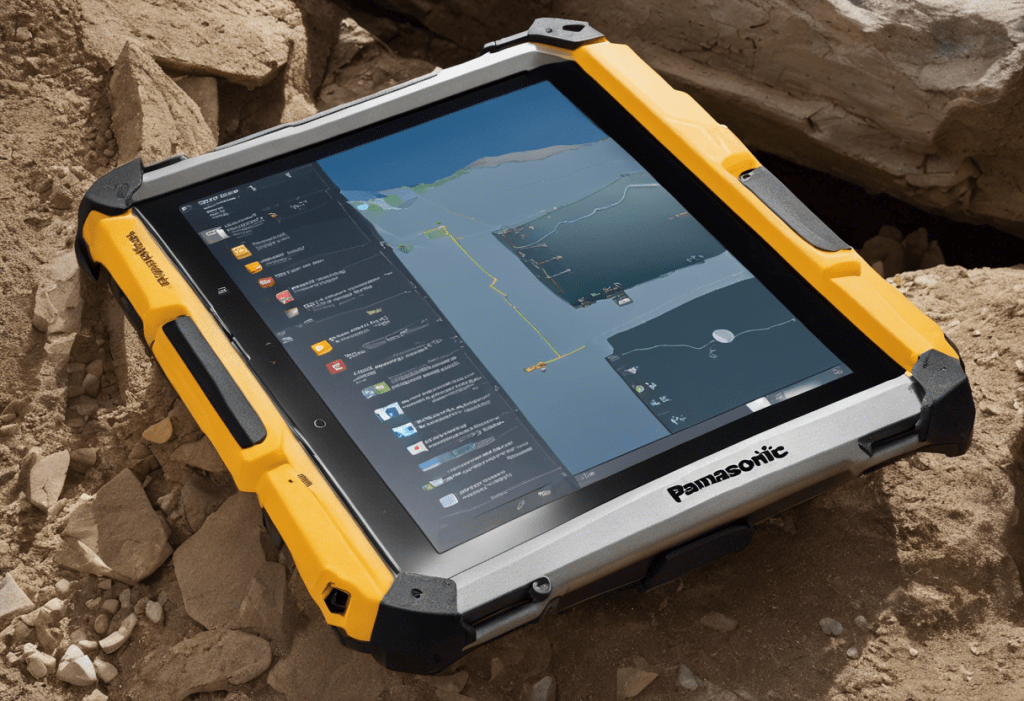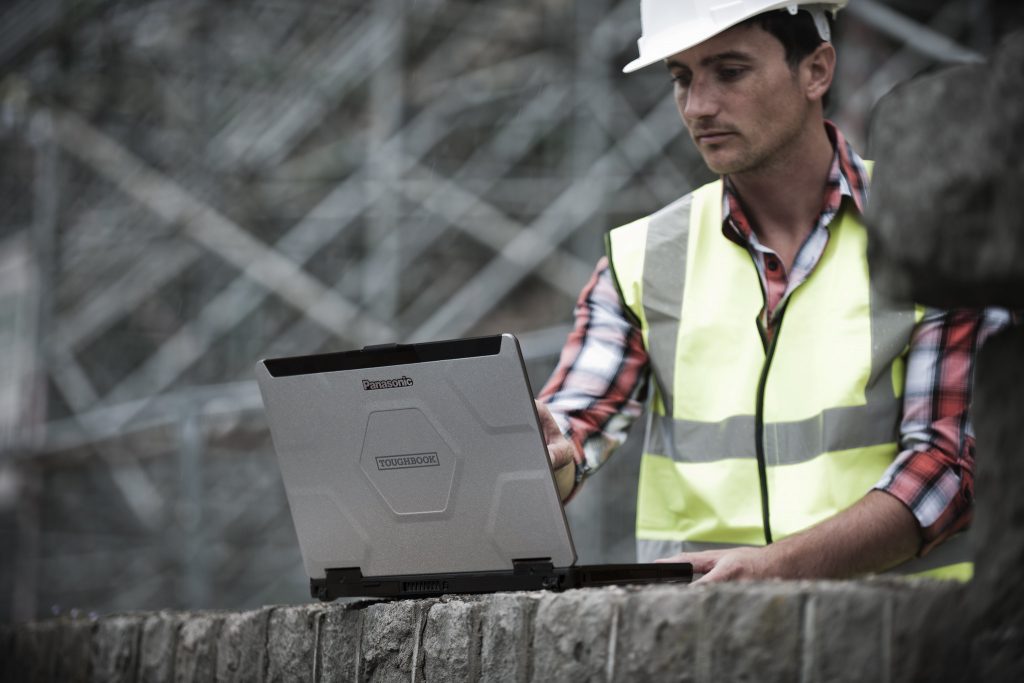Introduction
In industries where harsh environments and demanding tasks are the norm, choosing the right type of laptop or tablet can make all the difference. Fully Rugged vs Semi-Rugged Laptops and Tablets are specifically designed to withstand these tough conditions, but understanding the differences between them is crucial for making the right choice. This blog will delve into the characteristics of fully rugged and semi-rugged laptops and tablets, the leading manufacturers (Dell, Panasonic, and Getac), and real-world usage cases. We will also provide a detailed comparison of relevant models to help you make an informed decision.
Key Takeaways
- Understanding Your Needs: Determine the level of ruggedness required based on your work environment and specific use cases.
- Fully Rugged for Extreme Conditions: Choose fully rugged devices for maximum durability and reliability in harsh conditions.
- Semi-Rugged for Moderate Environments: Opt for semi-rugged devices when you need a balance of durability and cost-efficiency.
- Leading Brands: Dell, Panasonic, and Getac offer top-tier rugged devices with varying degrees of ruggedness to suit different needs.
- Performance and Features: Consider the specific features, performance, and durability requirements of your tasks to select the best device.

Characteristics of Fully Rugged vs Semi-Rugged Laptops and Tablets
Fully Rugged Devices
Fully rugged devices are built to operate in the most extreme environments. They offer the highest level of durability and protection against physical damage, environmental factors, and operational hazards. Key characteristics include:
- MIL-STD-810G/H Certification: Ensures resistance to drops, shocks, vibration, and extreme temperatures.
- IP65 or Higher Rating: Provides protection against dust and water ingress.
- Reinforced Chassis and Ports: Enhanced structural integrity to prevent damage from impacts and rough handling.
- Long Battery Life: Often equipped with dual batteries or hot-swappable options to ensure continuous operation.
- Sunlight-Readable Displays: High-brightness screens for clear visibility in direct sunlight.
Semi-Rugged Devices
Semi-rugged devices offer a balance between durability and cost. They are designed for moderately harsh environments, providing robust protection without the extreme specifications of fully rugged devices. Key characteristics include:
- MIL-STD-810G Certification: Resistance to drops, shocks, and vibration, but to a lesser extent than fully rugged devices.
- IP54 Rating: Moderate protection against dust and water.
- Reinforced Chassis: Strengthened compared to standard devices but less robust than fully rugged options.
- Good Battery Life: Adequate for extended use but typically without hot-swappable options.
- Enhanced Displays: Improved readability in bright conditions, though not as advanced as fully rugged devices.
Leading Manufacturers: Dell, Panasonic, and Getac
Dell
Dell is renowned for its Latitude Rugged series, which includes both fully rugged and semi-rugged options. Dell’s rugged devices are known for their durability, advanced security features, and high performance.
- Fully Rugged: Dell Latitude 7424 Rugged Extreme
- Semi-Rugged: Dell Latitude 5420 Rugged
Panasonic
Panasonic’s Toughbook series is a staple in the rugged device market. These devices are celebrated for their exceptional build quality, reliability, and innovative features tailored for tough environments.
- Fully Rugged: Panasonic Toughbook CF-33
- Semi-Rugged: Panasonic Toughbook CF-54
Getac
Getac specializes in producing some of the most durable and resilient devices available. Their rugged laptops and tablets are favored in industries requiring extreme reliability and performance.
- Fully Rugged: Getac B300
- Semi-Rugged: Getac S410
Fields and Cases for Fully Rugged vs Semi-Rugged Devices
Fully Rugged Devices
Industries and Use Cases:
- Military and Defense: Fully rugged devices like the Getac B300 are ideal for military personnel who operate in combat zones or extreme conditions. These devices withstand shocks, vibrations, and extreme temperatures.
- Public Safety: Law enforcement and fire departments use fully rugged devices for their durability and reliability in critical situations.
- Construction: Fully rugged laptops and tablets, such as the Panasonic Toughbook CF-33, are essential for construction sites where devices are exposed to dust, water, and physical impacts.

Real-World Example:
- Field Study: A military unit deployed in a desert region utilized the Getac B300. The device's MIL-STD-810G certification ensured it could withstand sandstorms, high temperatures, and rough handling, providing reliable performance in a demanding environment.
Semi-Rugged Devices
Industries and Use Cases:
- Healthcare: Semi-rugged devices like the Dell Latitude 5420 Rugged are suitable for healthcare professionals who need durable yet lightweight devices for daily use in hospitals and clinics.
- Field Service: Utility workers and maintenance crews benefit from semi-rugged laptops and tablets that offer durability without the bulk of fully rugged devices.
- Education: Semi-rugged devices are ideal for educational institutions where students and staff need reliable technology that can withstand accidental drops and spills.
Real-World Example:
- Field Study: A utility company equipped its field technicians with the Panasonic Toughbook CF-54. The device's semi-rugged build provided the necessary durability for outdoor work while remaining lightweight and portable, improving efficiency and reducing device failure rates.
Features and Performance of Each Kind
Fully Rugged Devices
Features:
- Advanced Durability: MIL-STD-810G/H and IP65 certifications.
- Extended Battery Life: Dual batteries and hot-swappable options.
- Superior Display: Sunlight-readable and glove-compatible touchscreens.
- High Performance: Equipped with powerful processors and ample RAM.
Performance and Durability:
Fully rugged devices are engineered to deliver peak performance in the harshest conditions. They maintain functionality even when subjected to severe physical and environmental stress, making them indispensable for critical field operations.
Semi-Rugged Devices
Features:
- Moderate Durability: MIL-STD-810G and IP54 certifications.
- Good Battery Life: Sufficient for full workdays, though not as extensive as fully rugged devices.
- Enhanced Display: Improved brightness and durability compared to standard devices.
- Balanced Performance: Reliable processors and RAM configurations suitable for most field applications.
Performance and Durability:
Semi-rugged devices offer a practical compromise between performance and durability. They provide reliable operation in moderately harsh environments and are more affordable and lighter than their fully rugged counterparts.
Comparison of Relevant Models
Fully Rugged Models
Getac B300:
- Build and Durability: MIL-STD-810G/H, IP65
- Display: 13.3" sunlight-readable
- Performance: Intel Core i7, up to 32GB RAM, SSD storage
- Battery Life: Up to 30 hours with dual battery system
- Connectivity: Wi-Fi, Bluetooth, GPS, LTE option
Dell Latitude 7424 Rugged Extreme:
- Build and Durability: MIL-STD-810G, IP65
- Display: 14" FHD, outdoor-readable
- Performance: Intel Core i5/i7, up to 32GB RAM, SSD storage
- Battery Life: Up to 14 hours
- Connectivity: Wi-Fi, Bluetooth, GPS, LTE option
Panasonic Toughbook CF-33:
- Build and Durability: MIL-STD-810G, IP65
- Display: 12" QHD, 2-in-1 detachable
- Performance: Intel Core i5/i7, up to 16GB RAM, SSD storage
- Battery Life: Up to 20 hours with optional long-life battery
- Connectivity: Wi-Fi, Bluetooth, GPS, LTE option
Semi-Rugged Models
Getac S410:
- Build and Durability: MIL-STD-810G, IP54
- Display: 14" sunlight-readable
- Performance: Intel Core i5/i7, up to 16GB RAM, SSD storage
- Battery Life: Up to 13 hours
- Connectivity: Wi-Fi, Bluetooth, GPS, LTE option
Dell Latitude 5420 Rugged:
- Build and Durability: MIL-STD-810G, IP54
- Display: 14" FHD, outdoor-readable
- Performance: Intel Core i5/i7, up to 16GB RAM, SSD storage
- Battery Life: Up to 10 hours
- Connectivity: Wi-Fi, Bluetooth, GPS, LTE option
- Build and Durability: MIL-STD-810G, IP54
- Display: 14" FHD, outdoor-readable
- Performance: Intel Core i5/i7, up to 16GB RAM, SSD storage
- Battery Life: Up to 11 hours
- Connectivity: Wi-Fi, Bluetooth, GPS, LTE option
Conclusion
Selecting the right rugged laptop or tablet involves understanding the differences between fully rugged and semi-rugged devices and assessing your specific needs. Fully
rugged devices from manufacturers like Getac, Dell, and Panasonic provide unparalleled durability for the most extreme conditions, while semi-rugged options offer a practical balance for less demanding environments. By considering the characteristics, performance, and use cases discussed in this blog, you can make an informed decision that ensures reliability and efficiency in your work.
FAQ
What is the main difference between fully rugged and semi-rugged devices?
Fully rugged devices offer maximum durability and protection against extreme conditions, while semi-rugged devices provide a balance of durability and cost for moderately harsh environments.
Which industries benefit most from fully rugged devices?
Industries such as military, public safety, and construction benefit most from fully rugged devices due to their extreme durability and reliability.
Are semi-rugged devices suitable for outdoor use?
Yes, semi-rugged devices are suitable for outdoor use in moderately harsh conditions. They offer good protection against dust, water, and physical impacts.
How do I decide whether I need a fully rugged or semi-rugged device?
Consider the specific environmental conditions and the level of durability required for your tasks. Fully rugged devices are ideal for extreme conditions, while semi-rugged devices are sufficient for less severe environments.
Can I use rugged devices in the healthcare industry?
Yes, semi-rugged devices are commonly used in healthcare for their durability and reliability in daily hospital and clinic environments.

Ulrik Maxen: Specialist in rugged computers and mobile scanners
Ulrik is an industry veteran with over two decades of expertise working with rugged computers and mobile barcode scanners. Brands include Panasonic, DELL, Getac, Zebra, and Honeywell/Intermec. He is known for his commitment to delivering products and solutions that increase operational efficiency. Dedicated to following new market trends and client satisfaction, Ulrik is a trusted advisor where rugged computers and mobile barcode scanners must be deployed.




